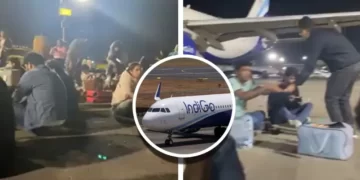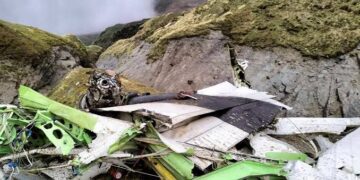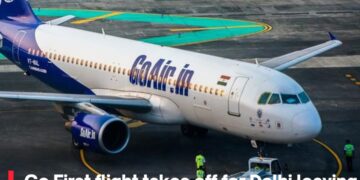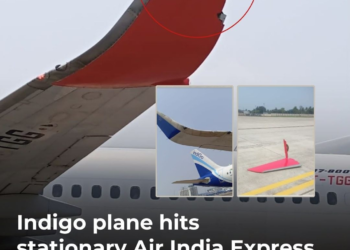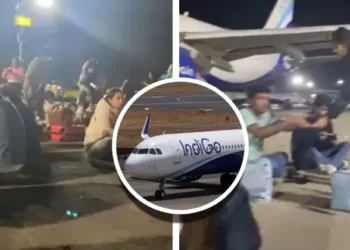NEW DELHI: Indian carriers with weak finances and/or an ageing fleet will now have their aircraft cabins and the Aircraft thoroughly checked when parked at night across major airports in the country. The Directorate General of Civil Aviation (DGCA) will despatch its teams to check each aircraft thoroughly with common complaints being about broken hand rests, meal tables, window panes and torn seats.
Aircraft in the cabins of which something that could potentially affect safety — like these things hurting passengers during turbulence in bad weather — will be grounded and allowed to fly again only after the deficiencies have been rectified, said a senior regulatory official. These checks will be in addition to the regular engineering inspections.
The exercise started informally with the DGCA recently grounding a SpiceJet Boeing 737 in Bengaluru and then an Air India Airbus A320 in Kolkata when passengers Tweeted pictures of shabby interiors, with the airlines being directed to fly them again only after repairs.
“Now we will do this on a regular basis at night time when the planes are parked. If anything that could affect safety is detected, the planes will be grounded till the airline rectifies the deficiencies,” said a senior official.
“(Exhaustive checks) are in progress. We have covered about half the fleet (of SpiceJet’s 70 aircraft). Deficiencies are being identified and addressed. Will not let an aircraft with any safety issue fly without it being properly attended. We expect things to improve shortly,” DGCA chief Arun Kumar told
The formal exercise has begun with low cost SpiceJet. The budget carrier’s promoter Ajay Singh on Wednesday met top DGCA officials including DGCA Arun Kumar and his deputy & head of safety Maneesh Chopra.
“The message conveyed to SpiceJet was very clear: They need to spend money to ensure safe operations is an absolute priority. They can defer all other expenses but cannot compromise on safety,” said people in the know.
After SpiceJet’s 70 aircraft are checked on a priority basis, the DGCA teams will turn their focus on other Airlines. First to come under the scanner are airlines with weak finances and/or old aircraft.
“Some aircraft may need to be grounded for varying periods of time till all requisite repairs are carried out. Some flights may get cancelled due to this but ensuring safety of passengers is paramount,” said people behind the exercise.
In the past, DGCA used to conduct financial audits when a particular airline/s used to be under severe financial stress. Kingfisher, for instance, underwent this exercise in 2010. None of the Indian carriers had strong balance sheets before 2019-end, with the sole exception of IndiGo that had healthy cash reserves. Covid’s devastating effect on air travel further weakened all airlines, including taking IndiGo — the only sustainably profitable airline till the start of 2020 — into deep losses.
“Today every airline has weak finances. Only a few airlines are part to cash-rich groups (like the Tatas now having several airlines in its fold). Conducting a financial audit will reveal what is already known. The better option under these special pandemic circumstances is to bring all aircraft under the scanner, each one of each airline by prioritising checks of those belonging to airlines that are financially weak airlines and/or have ageing aircraft,” said a person in the know.
Aircraft in the cabins of which something that could potentially affect safety — like these things hurting passengers during turbulence in bad weather — will be grounded and allowed to fly again only after the deficiencies have been rectified, said a senior regulatory official. These checks will be in addition to the regular engineering inspections.
The exercise started informally with the DGCA recently grounding a SpiceJet Boeing 737 in Bengaluru and then an Air India Airbus A320 in Kolkata when passengers Tweeted pictures of shabby interiors, with the airlines being directed to fly them again only after repairs.
“Now we will do this on a regular basis at night time when the planes are parked. If anything that could affect safety is detected, the planes will be grounded till the airline rectifies the deficiencies,” said a senior official.
“(Exhaustive checks) are in progress. We have covered about half the fleet (of SpiceJet’s 70 aircraft). Deficiencies are being identified and addressed. Will not let an aircraft with any safety issue fly without it being properly attended. We expect things to improve shortly,” DGCA chief Arun Kumar told
The formal exercise has begun with low cost SpiceJet. The budget carrier’s promoter Ajay Singh on Wednesday met top DGCA officials including DGCA Arun Kumar and his deputy & head of safety Maneesh Chopra.
“The message conveyed to SpiceJet was very clear: They need to spend money to ensure safe operations is an absolute priority. They can defer all other expenses but cannot compromise on safety,” said people in the know.
After SpiceJet’s 70 aircraft are checked on a priority basis, the DGCA teams will turn their focus on other Airlines. First to come under the scanner are airlines with weak finances and/or old aircraft.
“Some aircraft may need to be grounded for varying periods of time till all requisite repairs are carried out. Some flights may get cancelled due to this but ensuring safety of passengers is paramount,” said people behind the exercise.
In the past, DGCA used to conduct financial audits when a particular airline/s used to be under severe financial stress. Kingfisher, for instance, underwent this exercise in 2010. None of the Indian carriers had strong balance sheets before 2019-end, with the sole exception of IndiGo that had healthy cash reserves. Covid’s devastating effect on air travel further weakened all airlines, including taking IndiGo — the only sustainably profitable airline till the start of 2020 — into deep losses.
“Today every airline has weak finances. Only a few airlines are part to cash-rich groups (like the Tatas now having several airlines in its fold). Conducting a financial audit will reveal what is already known. The better option under these special pandemic circumstances is to bring all aircraft under the scanner, each one of each airline by prioritising checks of those belonging to airlines that are financially weak airlines and/or have ageing aircraft,” said a person in the know.


